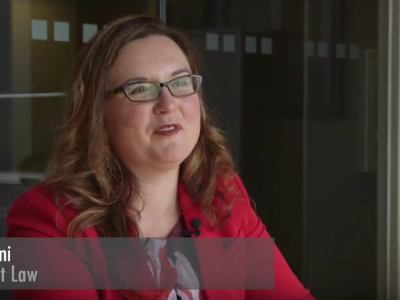Home » Benefits Insurance Claims » My Patient Needs to Stop Work … Now What?
My Patient Needs to Stop Work … Now What?
By Cassie Springer Ayeni, Disability and Life Insurance Benefits Lawyer
with Springer Ayeni, A Professional Law Corporation
cassie@benefitslaw.com . www.benefitslaw.com
It happens: your patient comes to an appointment, and after months or years of “getting by” at work, despite a degenerative or chronic condition, it is clear to you that those days are over. You recommend that for her health, she stop working. Now what?
What your patient now faces is a host of forms and requests from insurance companies and the government to ensure that she has some income even though she’s not working anymore. Besides savings (and it is unheard of for someone in the prime of her working life to have sufficient savings to live decently for the rest of her days), income sources for people with disabilities include:
- Employee benefit plans (short-term disability then long-term disability). Long-term disability usually starts after 6 months and can last until retirement age.
- Private disability insurance plans (also lasting until retirement age).
- State disability insurance that usually last for a year (like California’s EDD).
- Social Security Disability Benefits (available after being disabled for a year and lasting through retirement age).
To qualify for any of these benefits, the #1 thing that a patient needs is help and support from the doctor. Without it, she won’t be approved; and if support wanes in the future, the insurance companies won’t hesitate to cut off her benefits. Here’s what you can do to help ensure that your patient receives disability benefit income on time and without hiccups:
Medical Records
- Document the reason why the patient is disabled in the medical records. List as many objective findings as are available (ROM, atrophy, MRIs, visual findings, etc.), including your objective observations.
- Document in the medical records whether the patient’s complaints of pain, fatigue, or other disabling symptoms are credible.
- If the patient has worked with the condition, answer the question in the medical records of “why now?” Why was she able to work before with the condition but suddenly cannot? Has there been a worsening of symptoms? Do you feel that her best chance of getting better is by resting for a bit at home? Document your rationale in the medical records.
- When the patient gets approved for benefits, keep track of the symptoms in regularly scheduled check-ups; insurance companies request updated medical records every 6-12 months.
Forms Requests
- Be sure to complete and return forms as quickly as possible. Although it is tempting to punt the form-filling to a secretary, it is more credible when completed by you.
- If there are any boxes on the forms that not applicable to your patient, just write N/A or rephrase the question so it makes sense for your patient
- Beware of traps in the questions: If a question states “how often can your patient work? 3 hours, 6, hours, or 8 hours a day,” but you feel your patient could only work 1 hour a day with breaks and unreliable, don’t check a box; just write your true response.
Working with the Lawyers
- Thankfully, with the increasing popularity of medical-legal alliances, most physicians and lawyers now truly comprehend their shared interest in the patient’s well-being, and working together on the insurance requests helps for seamless communications with the insurer. A patient about to go on disability can benefit from a quick call to a benefits attorney to make sure that every “I” is dotted and “t” is crossed.
- A patient whose disability benefits claim has been denied should never attempt to appeal on her own without the benefit of some legal advice.
- Also, even when a patient is approved for benefits, don’t hesitate to ask her lawyer for help understanding the forms; the lawyer and the patient will appreciate it more than you know.
Cassie Springer Ayeni is the President and Founder of Springer Ayeni, A Professional Law Corporation, in Oakland, CA, where she focuses on ERISA disability and life insurance cases. She can be reached atcassie@benefitslaw.com or www.benefitslaw.com







